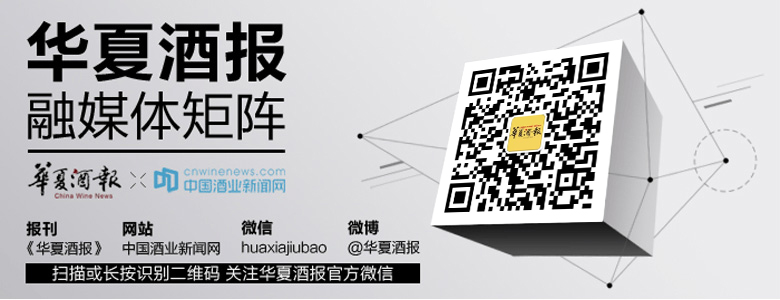Already iconic in China, Moutai is one of the world's leading spirits brands whose reputation has not ventured far beyond the Middle Kingdom. This is quite a paradox for the sorghum-based baijiu produced by the Chinese state-owned Kweichow, the national alcohol and symbol of communist China since Mao. "It's a fairly hybrid product between a wine and a spirit — it has the spirit’s high alcohol content, but similar characteristics to wine, both in terms of aging and vintage value," explains Cyril Camus, President of the renowned Cognac house.
Based in China since the 1990s, he realized early on that baijiu suffered from a bad reputation in the West — if it was known at all. And so Camus took up the challenge of introducing this "beautiful unknown" to Westerners and proposed a partnership with Kweichow Moutai to build and develop the brand's reputation among international customers. "I knew that in order to introduce baijiu abroad, we had to present the very top of the range, which is the Moutai brand," underlines Camus.

This collaboration began in 2005 with a campaign to raise awareness among international influencers — sommeliers, critics, mixologists — and marketing the Moutai brand in key travel retail airport locations. The strategy started in Asia, then expanded to New York, to the US West Coast, Paris, London, Frankfurt and Moscow.
The transformation of Moutai’s packaging represented a prime asset to build the brand’s recognition abroad. "Our challenge was that we were working with a brand that was cult in China and hadn’t changed its label or packaging since the 1940s. We had to safeguard its DNA, while making it more “readable” and tweaking certain luxury codes that are not necessarily expressed in the same way in China and the West,” explains Camus.
From the pack to the choice of colors for the label and the inscription of the name in English, the first bottle of Moutai destined for export was a smooth evolution from the original identity.
It wasn’t until a few years later that the notion of Chinese culture was integrated into the packaging, in the form of two traditional porcelain bottles made by Jiangsu Yixiang Ceramic Technology Co in Yixing, the “secular capital" of Chinese pottery. The flacons were illustrated with calligraphy by Chinese poets of the Tang dynasty Li Bai and Du Fu and gold screen-printed detailing; the cardboard case was printed and shaped in Shenzhen by Yuto Tech. “These elements convey the luxury, quality side of the brand by associating it with Chinese culture and tradition,” notes Camus.

The Moutai reserved for export differs from the brand's spirits marketed in China both in terms of container and content. "We haven’t tried to create a more seductive or appealing taste, but thanks to the porosity of the porcelain, the baijiu breathes and evolves over time as does a great wine. This is no longer the case with the classic versions sold in China, as the bottles are now made of glass".

In celebration of the 10th anniversary of the association between Camus and Kweichow, some 100 numbered bottles were offered to the first 100 partner airport retailers that had launched the adventure 10 years earlier. A precious wooden box (pictured above) contains a 2005 vintage commemorating the launch year enclosed in a red handmade Baccarat bottle decorated with a label made by Les Étains d'Anjou, a decanter and two red Baccarat tasting glasses. "Associating the Moutai brand with other internationally renowned products allows us to send a very strong message that the brand belongs to the world of luxury."
"Moutai has been a pioneer when it comes to boosting the Chinese alcohol’s reputation in the world and its commercial success has allowed other less iconic brands to conquer Western customers," remarks Camus. These other brands include Ming River, an American brand created from scratch by Bill Isker, Dereck Sandhaus and Matthias Heger. After opening baijiu bar Capital Spirit in Beijing, the three partners quickly saw the commercial potential of Chinese alcohol abroad. They signed on Luzhou Laojiao distillery, founded in 1573 in Sichuan, whose Baijiu signature Cave Nationale is considered a real treasure in China, to produce Ming River. "This baijiu will be very different from those found in China: not as strong, with exotic fruit aromas and closer to gin or tequila and therefore easier to use in cocktails," explains brand manager Suzanne So.

To stand out on-shelf at the cocktail bar, Ming River deliberately broke with the codes of traditional baijiu packaging. Gone are the porcelain and the red and gold colors that symbolize prosperity and happiness in China. British agency United Creatives created the brand’s visual identity, designed the bottle and its label as a link between China and the West: a transparent glass bottle, but in the shape of a traditional Chinese lantern, a dark blue label that blends Chinese calligraphy and product information for the uninitiated and a cap stamped with the words Ming River in Chinese characters. "It's a clear and streamlined concept with a bottle that is easy to take in hand," adds So. It is also more accessible than Moutai at €55 a bottle.

The trend towards the democratization of Chinese spirits abroad has not escaped Maison Camus. Late April of this year, the group launched Shede Founder's Tribute, an organic baijiu produced by a distillery in Sichuan. "Moutai is an iconic, but expensive brand; our duty-free entry-level product sells for €265 per bottle.
With Shede Founder's Tribute (€56 in duty-free and online), we are targeting a younger clientele who want to experience baijiu with a meal or at a cocktail party," says Cyril Camus.
Designed by Beijing-based agency Colorfulling, the exclusive duty-free box and bottle of Shede Founder's Tribute combine Chinese heritage with a modern Yin and Yang design on a black and light gray background. In Chinese, Shede means 'lose to win', hence the contrasting colors, chosen to appeal to Western tastes.
The bottle (Sichuan Longchang Jianglong Glasses Industry), is lacquered matte for a 'cermaic' effect, and its neck wrapped in black paper printed with the Shede Founder’s Tribute logo, specially created for this baijiu. Sichuan Longxin supplied the cork. The paperboard coffret, meanwhile, was produced by Chengdu Shengshi.
Apart from a symbolic logo with Chinese characters, the product name and information is in English. "When we started in international markets we didn't really know how to brand this drink, but 15 years on there’s a real consensus from brands to use the term Chinese Baijiu abroad. We’ve come full circle!" concludes Camus.

